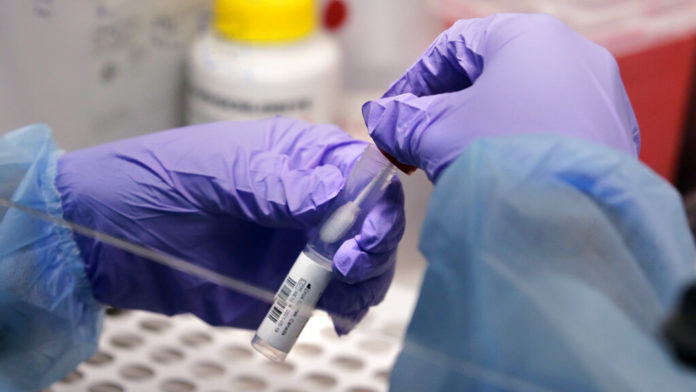
Public health experts and officials in Arizona say a decline in coronavirus testing last month has made it challenging to understand the virus and implement measures to limit its spread.
Diagnostic tests for COVID-19 dropped from an average of more than 107,000 tests a week from late June to early July to about 51,400 tests the week of July 26, The Arizona Republic reported.
Over the course of just three weeks in July, from July 12 to July 26 weekly testing decreased by more than half, according to a data dashboard from the Arizona Department of Health Services. Arizona is now testing at the level it was two months ago.
The state has simultaneously been improving with a decline in hospitalizations, fewer new cases and a lower percentage of positive results, but experts say continued testing is an important way to monitor the virus.
Positive test results can alert public health to ongoing or new outbreaks and areas to allocate additional resources and attention, officials said. Getting a good snapshot of community transmission in order to slow it requires more testing, not less.
“I think the more testing we do, the more we can identify those folks who have the virus and get them isolated — and that is the way to actually drive the numbers down, is more testing,” said Dr. Joshua LaBaer of Arizona State University’s Biodesign Institute.
“It may be that people are feeling fine, so they’re not looking for the tests because it’s circulating less in the community,” Department of Health Services Director Cara Christ said, adding that there could be a number of reasons for the decline in testing.
Some say acting on the test results is also important, if not more important than actually getting tested.
“There’s an enormous focus on tests and test numbers,” said Barry Bloom, a professor of public health at Harvard T.H. Chan School of Public Health. “Testing does not have, directly, any impact on the epidemic, per se. It is the quarantine of somebody who’s positive, the identification and isolation of contacts, which is the public health intervention, that interrupts trains of transmission.”
The state has encouraged ongoing testing and is currently working on a new statewide testing plan for the coming months.
“We’re going to continue to ramp up testing — and there’s much that needs to be improved and fixed with testing — to identify infections in our state,” Republican Gov. Doug Ducey said at a July 30 briefing. “You’ll see additional lab capacity and additional collection sites, in addition to the 375 that we have today.”
The number of infections is thought to be far higher because many people have not been tested, and studies suggest people can be infected with the virus without feeling sick.
For most people, the new coronavirus causes mild or moderate symptoms, such as fever and cough that clear up in two to three weeks. For some — especially older adults and people with existing health problems — it can cause more severe illness, including pneumonia, and death.
Republished with the permission of the Associated Press.














